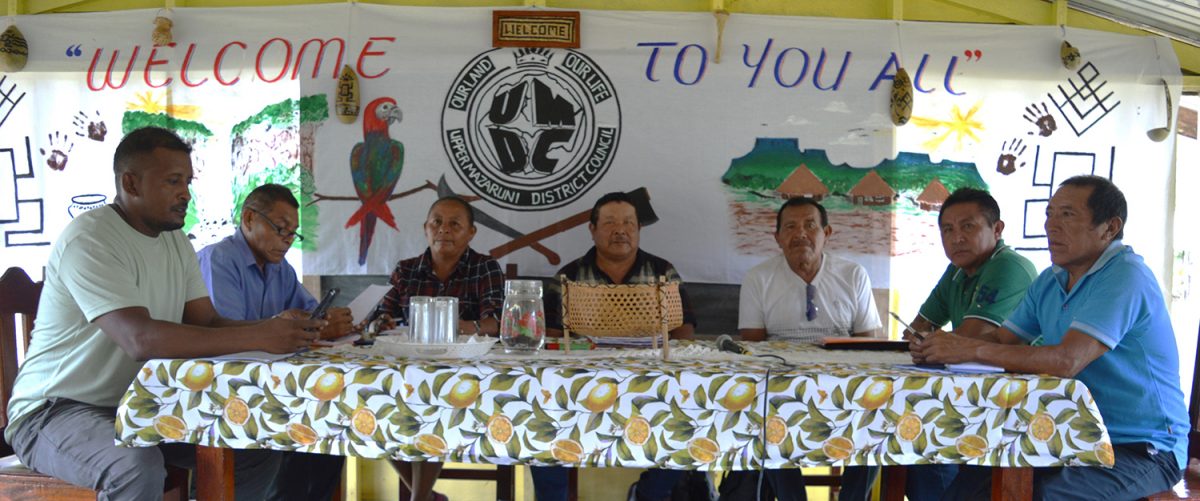The Upper Mazaruni District Council (UMDC) yesterday restated their position that proper consultations on carbon trading were not conducted in their communities, neither was their free, prior, and informed consent (FPIC) given to sell carbon from their customary lands.
The UMDC consisting of eight villages and satellite areas in Cuyuni/Mazaruni held its statutory meeting on 9-11 May, 2023 in Paruima and collectively reaffirmed its stance.
Although the government previously shared some information on the Low Carbon Development Strategy (LCDS), these sessions were not specifically about carbon markets and the Architecture for REDD+ Transactions (ART), a release from the UMDC said yesterday.
“These are separate topics that should have had separate consultations. In addition, the government did not listen to our request for funding and support to train our own resource persons, who could travel from village to village to consult with our people on both the LCDS and the carbon trading plan. If the government had supported us in this way, we would have been able to take our own time to understand these plans and come to our own decisions on them. The cluster meeting held in Kamarang Village was insufficient for proper consultation. In addition, putting information on websites is not helpful for villages with limited internet access”, the council asserted.
It said that it was dismayed by recent statements by the Office of the Vice President and the NTC executive body that deny these concerns. It added that it was aware that the Amerindian Peoples Association (APA) has been the target of these attacks because of the letter that it sent to the ART board last month arguing that FPIC was not complied with in the carbon credits scheme.
“Like the APA, we are concerned that our FPIC was not properly sought in this matter, nor was it given.
We know that our peoples acting collectively may exercise this right. The National Toshaos Council provides valuable advice, but it cannot exercise this right on our behalf. These rights are important for us and for indigenous peoples all over the world where other countries want to sell carbon credits like Guyana”, the council said.
In addition, the council said that the requests made by the APA in their letter to ART are the very requests its communities have long been making: revise the Amerindian Act, resolve outstanding land claims, and ensure justice for communities suffering from illegal mining.
“We do not agree with the attacks on our rights. We call on the NTC chair and executive body to desist from issuing statements that claim to speak for our communities when we have not agreed to these statements. We are unhappy that the government misrepresents consultations with indigenous peoples to people outside of Guyana. We also call on the Office of the Vice President and the NTC executive body to cease their attacks and devote their energy instead to engaging constructively with our communities to address the legitimate concerns that have been raised”, the council said.
It listed the signatories to the statement as the villages of Phillipai, Chinoweing, Jawalla, Kako, Kamarang/Warawatta, Waramadong and Paruima. It said that Omanaik/Kambaru was absent.






